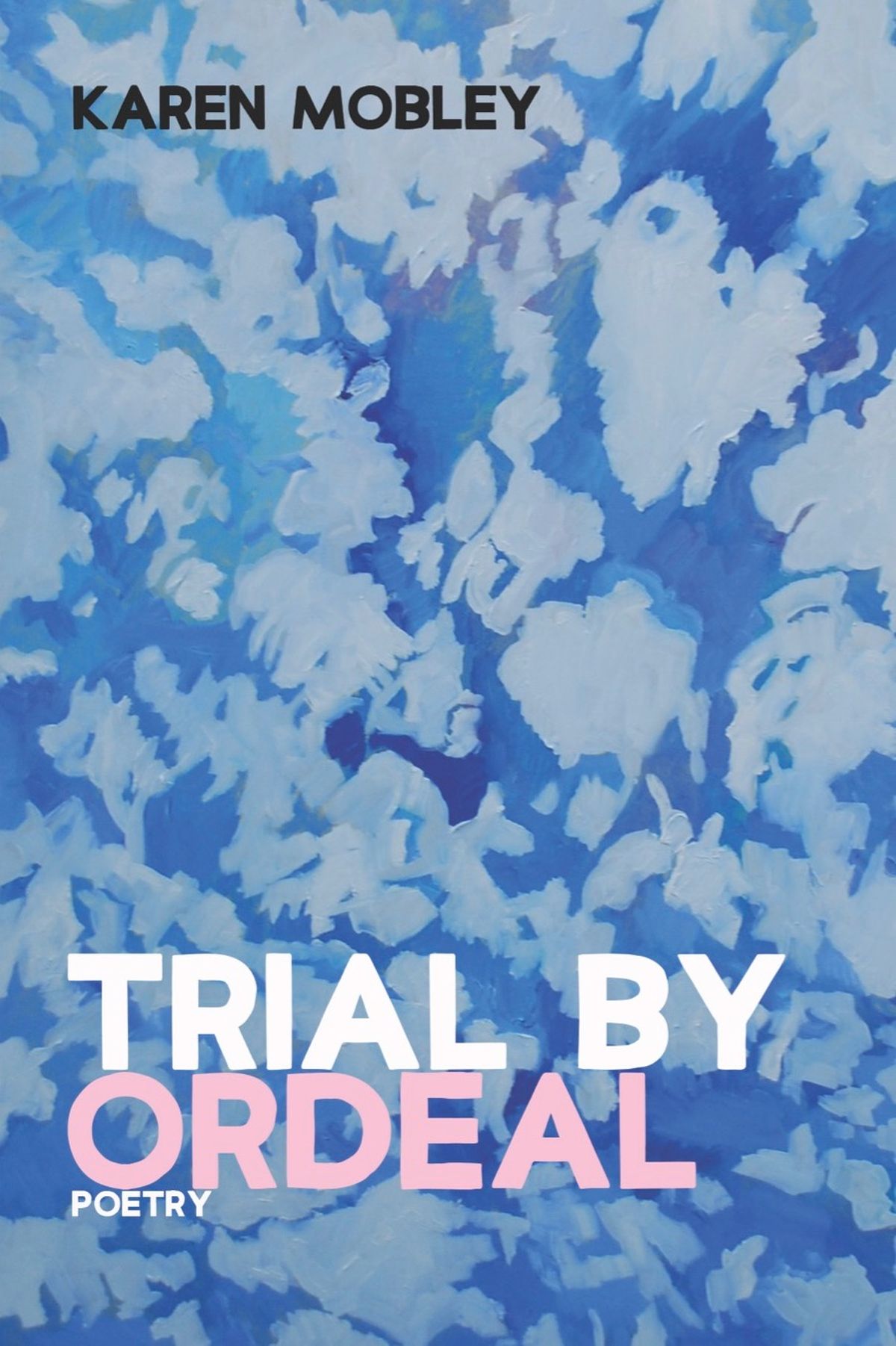Locally Writ: Artist and poet Karen Mobley releases her first collection of poetry, ‘Trial by Ordeal’

Local artist and poet Karen Mobley never goes anywhere without a composition notebook, often writing down thoughts and feelings in poetic fragments or longer narrative essays that later become poems.
She started writing seriously in the mid-1990s after falling in with a group of writer friends and going to literary festivals, open mics and poetry slams. Her current work, she explained, is much more introspective than performative, however.
As the name suggests, “Trial by Ordeal” began taking shape during a period of great personal loss and reckoning. The collection explores faith, family and love with vivid visual references. Themes of grief, loss and personal development are woven throughout.
“I did a lot of free writing and journaling and thinking about things as they were happening,” Mobley said, explaining how she had lost her mother, father and brother all while experiencing several other physical injuries in a short space of time. “A lot of it was frankly a little too raw to actually be in a public format.”
Years of revision and editing passed before she started searching for a publisher, a task she found perhaps even more challenging than the actual writing. The book was finished, but the ordeal wasn’t over.
“I don’t want to sound super discouraging,” Mobley said, referencing the years she spent researching poetry contests, independent publishers and university presses. “I literally did 10 at a time, then I’d get rejections. Then I’d do 10 more.”
Getting a book published is difficult in the best of times, she explained, a book of poetry, even more so. Getting a book of poetry published and onto store shelves during a pandemic with limited to no foot traffic in bookstores is, therefore, nearly impossible.
Finally, she found Wipf and Stock Publishers, and it was all worth the wait.
Mobley sees herself primarily as a visual artist, but her poetry and painting take inspiration from each other.
“Visual information is very important,” she said. “Both to my art and to my writing.”
While her art can sometimes be more illustrative, she finds that her ideas tend to “bounce off” certain specific visual experiences before moving into abstraction.
Mobley’s art, written and otherwise, frequently highlights a fascination with nature, biology and geography that she inherited from her father, a game warden, and her mother, “a fanatical birdwatcher.”
“A lot of what I write about are the kinds of things you’d see walking a ditch line,” she said, explaining the kind of streams that form in irrigation ditches you might find covered with tall grass or wildflowers and populated with bugs, amphibians and birds because plows will skip over them. “It’s a wonderful place to see small but important creatures in the ecosystem.”
“Heron,” a poem she wrote for the collection reads: “Sky reflects blues / Blue heron’s feathers / Dad’s blue eyes / fading to gray / to white with sadness. / Nests are high in the trees – / the trees with high dry branches. / The nests will fall when the tree does die. / She will lose her nest. Babies will cry. / He stands in the water up to his knee with just one leg.”
To aspiring writers, Mobley offered the following advice:
“I tell all creatives – writers, artists, actors, inventors, gardeners – to keep working, practice your craft and keep making friends. Just like in any field, as you practice, you get better. Everyone needs a friend – find a writing group or a community of support. I don’t think that there is a ‘best’ way other than a path of persistence.”
Buy the book: